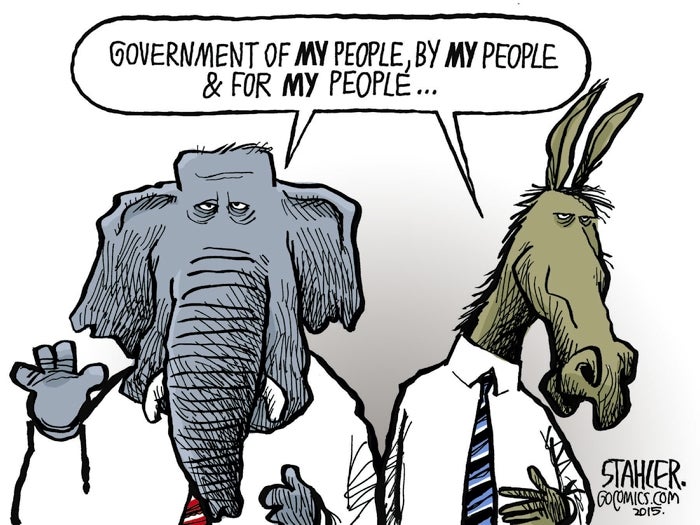Tom Campbell: What’s your tribe? Divisions are tearing country apart
Published 12:00 am Thursday, May 31, 2018
How do you identify yourself? You might begin by stating whether you’re male or female, or the age group you are in. Or you might identify by race, sex, religion, where you live or your profession.
Throughout recorded history humans have been tribal. We need to belong, to identify with others, to have established norms.
For much of the 20th century, most North Carolina voters belonged to the Democratic tribe. Many went so far as to define themselves as “North Carolina Democrats,” a tribal subset more moderate or conservative than the more liberal national tribe.
When the Republican Party emerged and inched within numerical parity, many cheered, thinking two competitive parties would be good for public debate, field more and better candidates, ensure better solutions and better government.
Two things dashed those aspirations.
Part of the reason why Republicans gained such a foothold in North Carolina was because, like the national Democratic Party, our state Democrats moved further to the progressive left. Many of those lifelong “North Carolina Democrats,” especially white males, complained the party had left them, so they, in turn, left and joined the Republican tribe.
We now see the GOP waging a similar battle for identity, with traditional mainstream Republicans (think Jim Broyhill and Jim Martin) trying to survive against more aggressive, hardline, ultra-right elements (think Mark Meadows and Bob Rucho).
These tribal wars are playing out badly for both parties, especially when you factor in the second reality — the absolute insistence that to keep your tribal ID card and secret decoder ring, you must either back the tribe in any and all positions, no matter how preposterous, or get off the reservation.
Registration numbers demonstrate more are leaving — or least not choosing the two dominant tribes. Unaffiliated voters will soon eclipse state Republicans in number and are gaining on Democrats. They haven’t formed a tribe yet, but stick around.
Amy Chua, in a fascinating book,”Political Tribes; Group instinct and the Fate of Nations,” says the identity politics that has seized both the American left and right is dangerous. “On the left, this has given rise to increasingly radical and exclusionary rhetoric of privilege and cultural appropriation,” she writes. “On the right, it has fueled a disturbing rise in xenophobia and white nationalism.”
As we head into the mid-term 2018 elections, here are some conclusions drawn from 50 years of following politics.
There is nothing wrong with identifying with a tribe. We always have and always will. What has made our current climate toxic and threatening is that our total allegiance to a political, philosophical or other tribe is robbing us of our larger identities as North Carolinians and Americans. And we aren’t just talking North Carolinians only or Americans only, because we are also citizens of the world.
These are not times for divisiveness. Comfortable as the tribe might be, the issues are too large, the consequences too great and lessons from our history demonstrate what happens when tribalism, nationalism or any of the “isms” dominate us and blind us into blaming, bigotry, isolation and hatred.
Bishop Michael Curry, in his magnificent homily at the Royal wedding, called us into becoming our better selves, people who love God, country and love one another. The real tribe to which we belong is that of humankind.
Tom Campbell, former assistant state treasurer, is creator/host of NC SPIN, a weekly television discussion of issues that airs on UNC-TV Fridays at 7:30 p.m. and Sundays at 12:30 p.m. Contact him at www.ncspin.com.


